The Four Worst Marketplaces to Buy Genuine Football Shirts
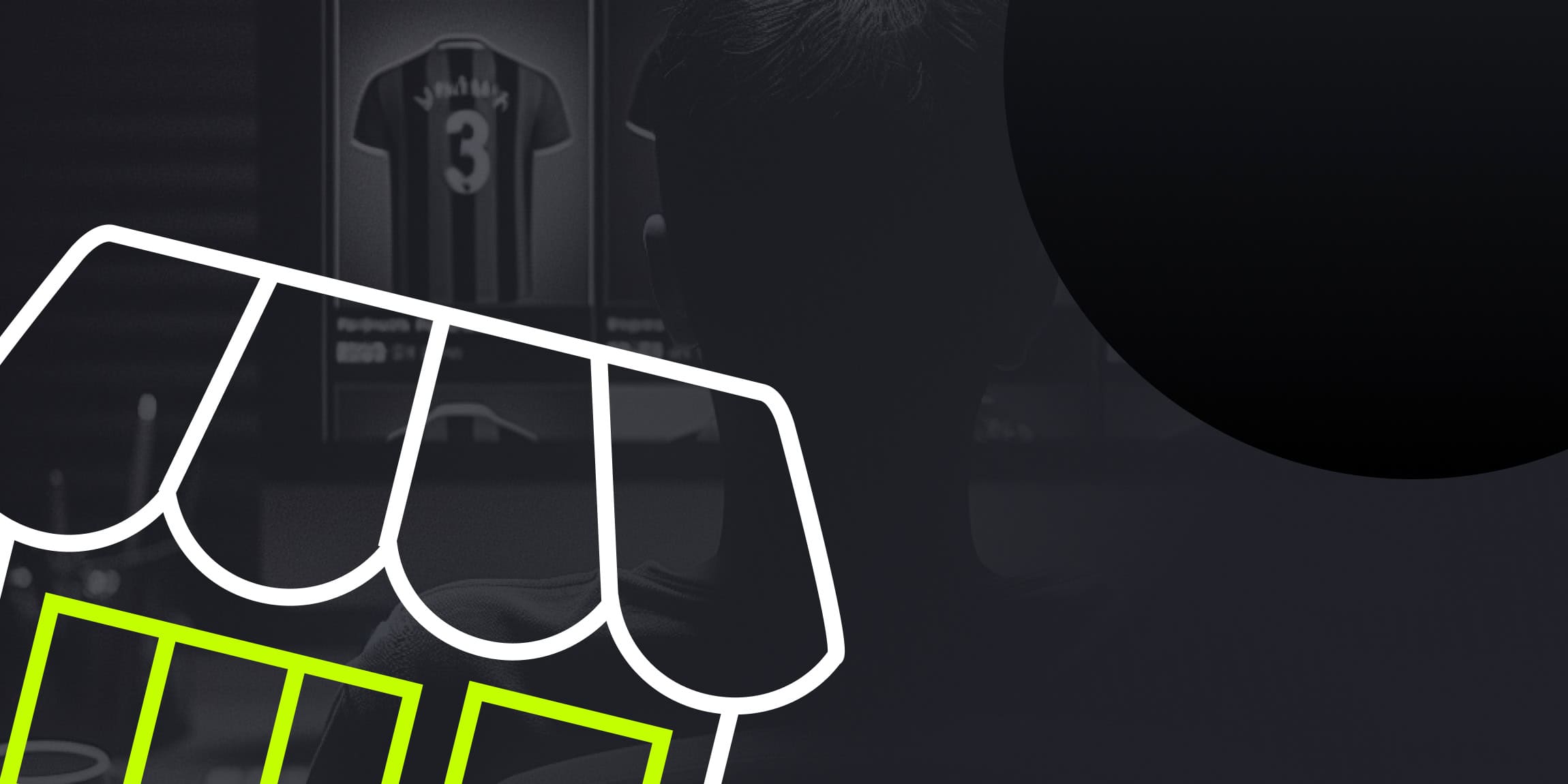
As football enthusiasts, we all cherish the thrill of donning our favorite team’s jersey. But in a world where counterfeit merchandise runs rampant, how can you ensure that the shirt you proudly wear is the real deal? Fear not! We’ve got your back with this complete guide on spotting fake football shirts.
David Beckham’s Legal Triumph: A Landmark for Brand Authenticity
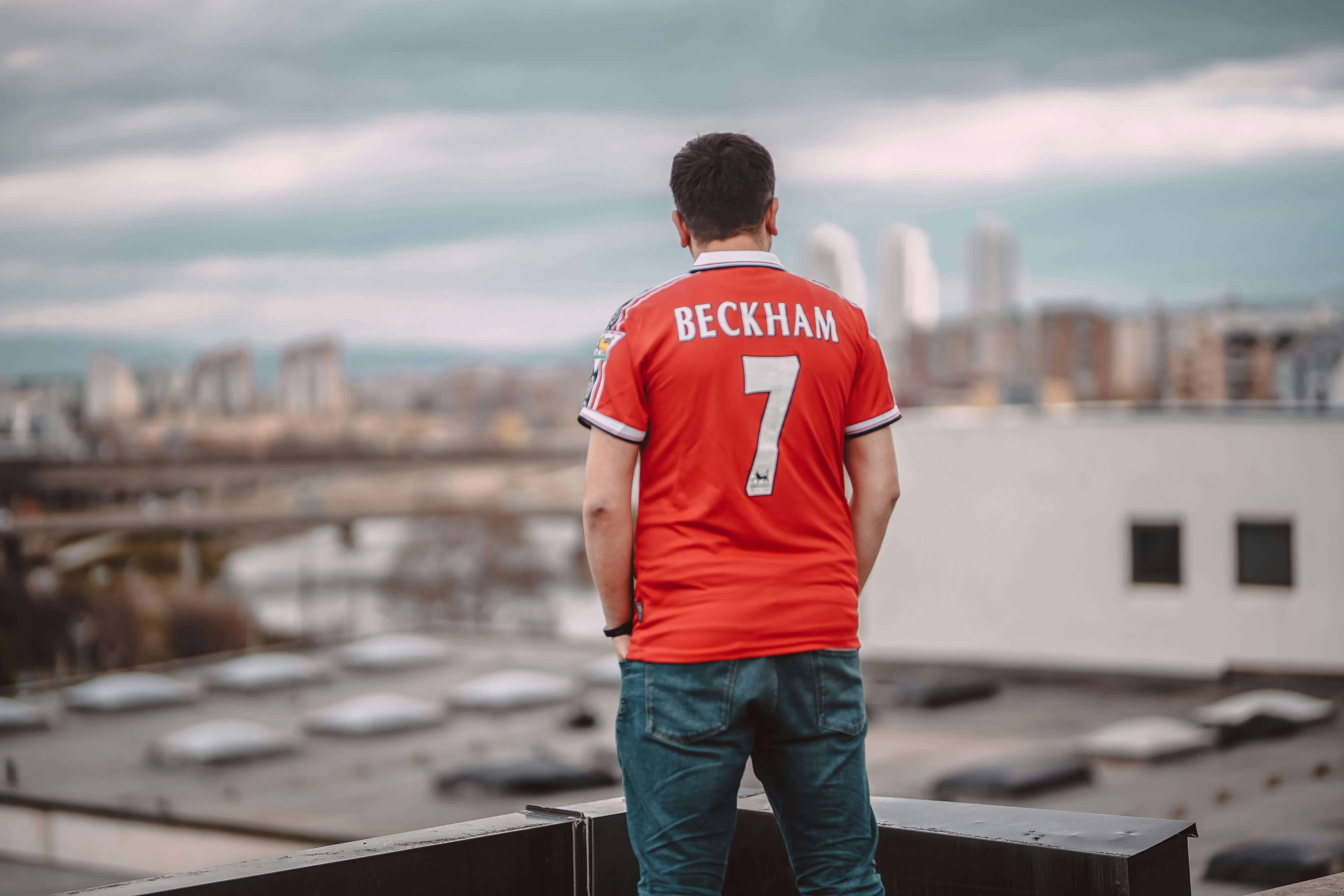
As football enthusiasts, we all cherish the thrill of donning our favorite team’s jersey. But in a world where counterfeit merchandise runs rampant, how can you ensure that the shirt you proudly wear is the real deal? Fear not! We’ve got your back with this complete guide on spotting fake football shirts.
A Comprehensive Guide to Identify Fake Football Shirts
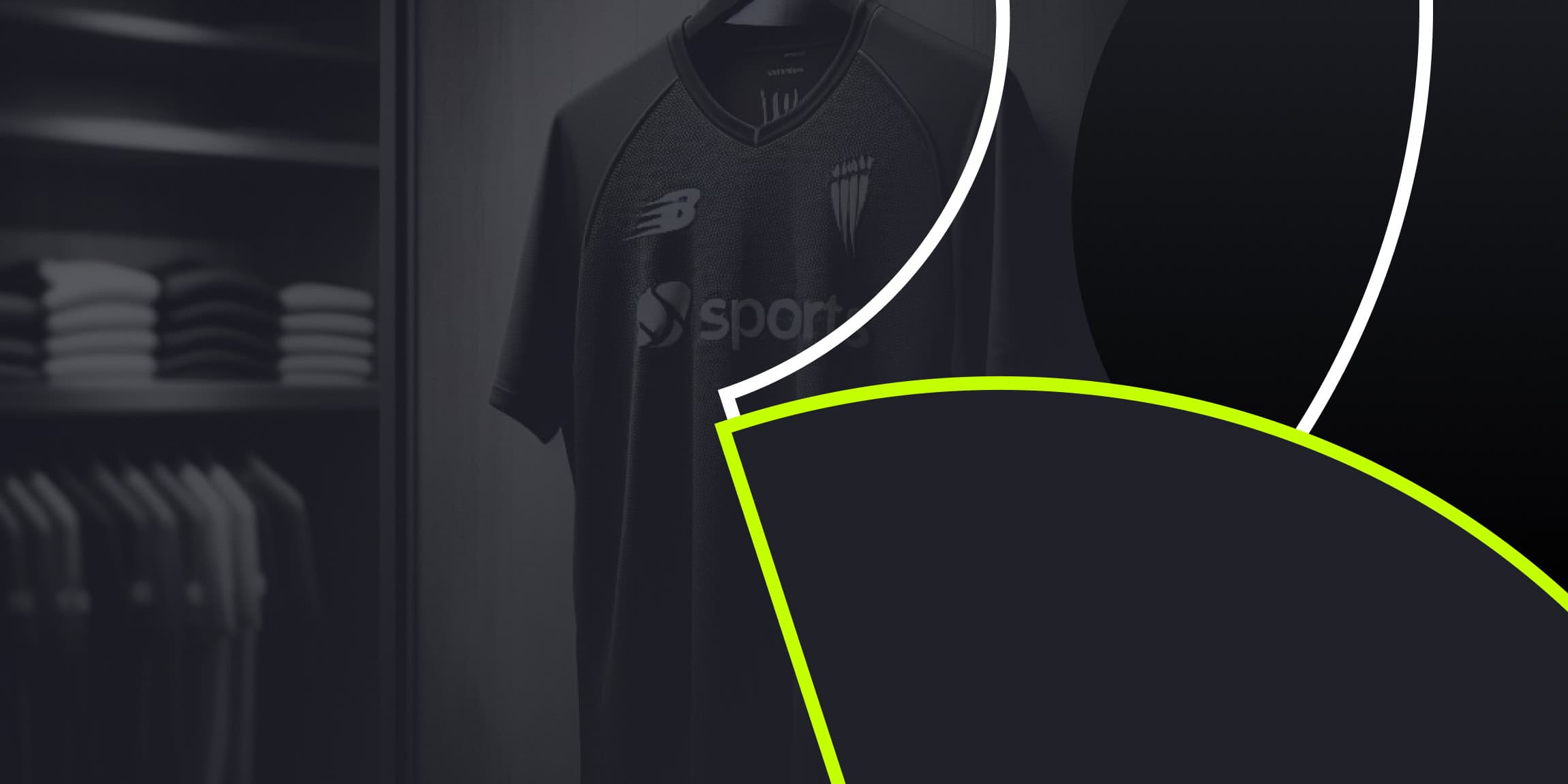
As football enthusiasts, we all cherish the thrill of donning our favorite team’s jersey. But in a world where counterfeit merchandise runs rampant, how can you ensure that the shirt you proudly wear is the real deal? Fear not! We’ve got your back with this complete guide on spotting fake football shirts.
Football Finery x KitLegit: Recapturing Nostalgia
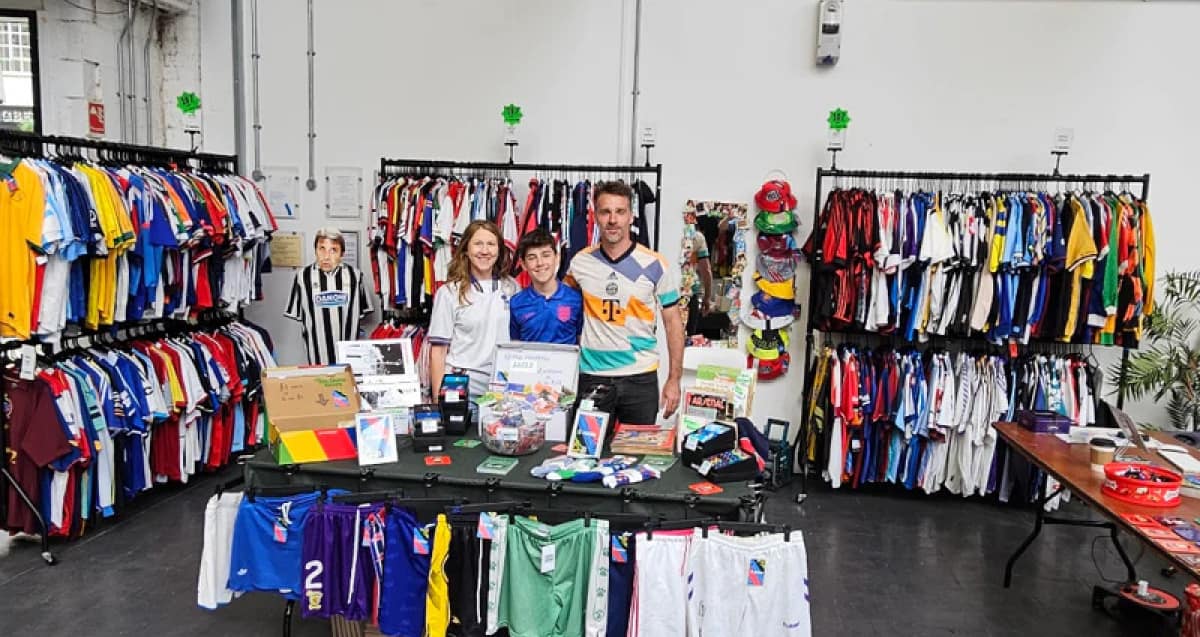
Football isn’t just a sport; it’s a tapestry of stories, emotions, and memories that bind fans across the globe. For many, like Chris Cooper, the journey begins in childhood, with a first match that imprints on the heart. It’s the sight of gleaming team buses and the roar of the crowd that ignites a lifelong passion.
Le Parc à Maillots x KitLegit: A Journey of Authenticity and Passion
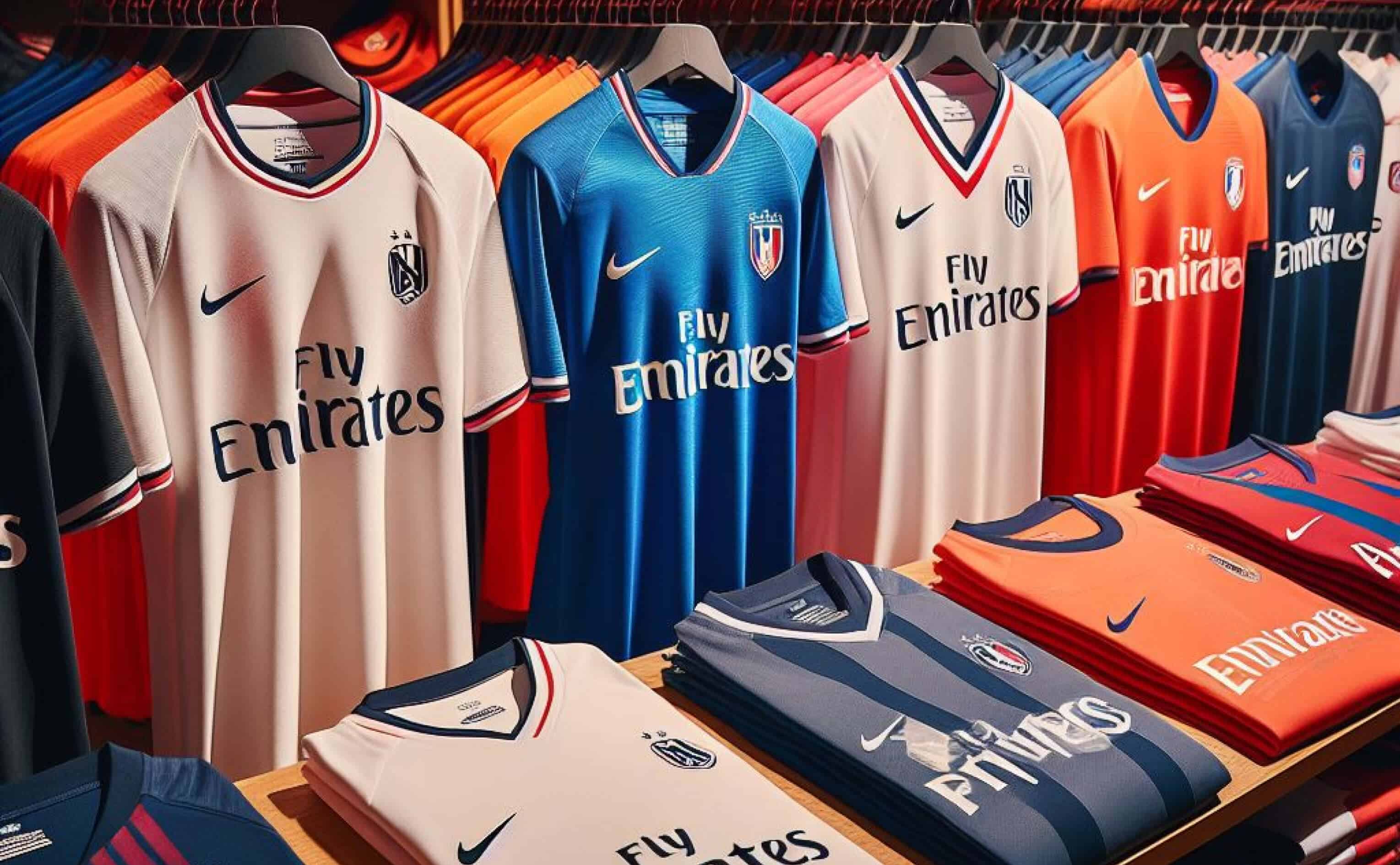
In the heart of France, a passion for football and a commitment to authenticity gave birth to an online retail phenomenon: Le Parc à Maillots. Founded by Andréas Athée, a football enthusiast with a keen eye for genuine merchandise, Le Parc à Maillots has quickly become a trusted name in the world of football apparel.
A Stand Against Counterfeiting: The Napoli-Barcelona Incident
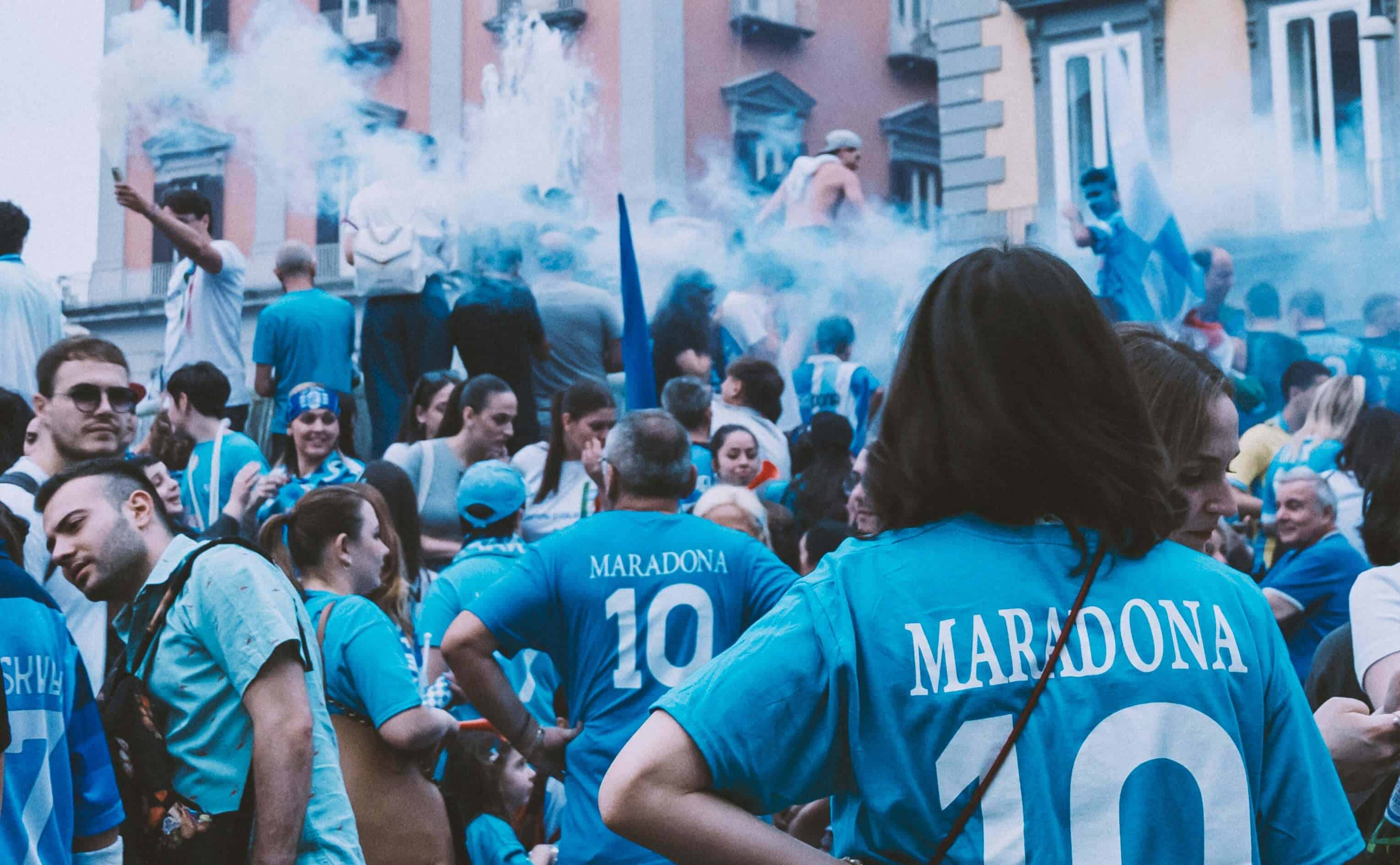
Counterfeit products are a major issue in the sports merchandise industry. Recently, a factory in Naples, Italy, producing thousands of fake items related to the Napoli-Barcelona Champions League match, was seized. At KitLegit, we stand against such practices. Our AI-powered tool ensures authenticity, helping sellers and buyers alike. Let’s demand genuine products and stand together against counterfeiting. Read our latest blog post to learn more about this incident and our stand against counterfeiting.
Building Trust in Football Shirt Sales: The KitLegit Approach
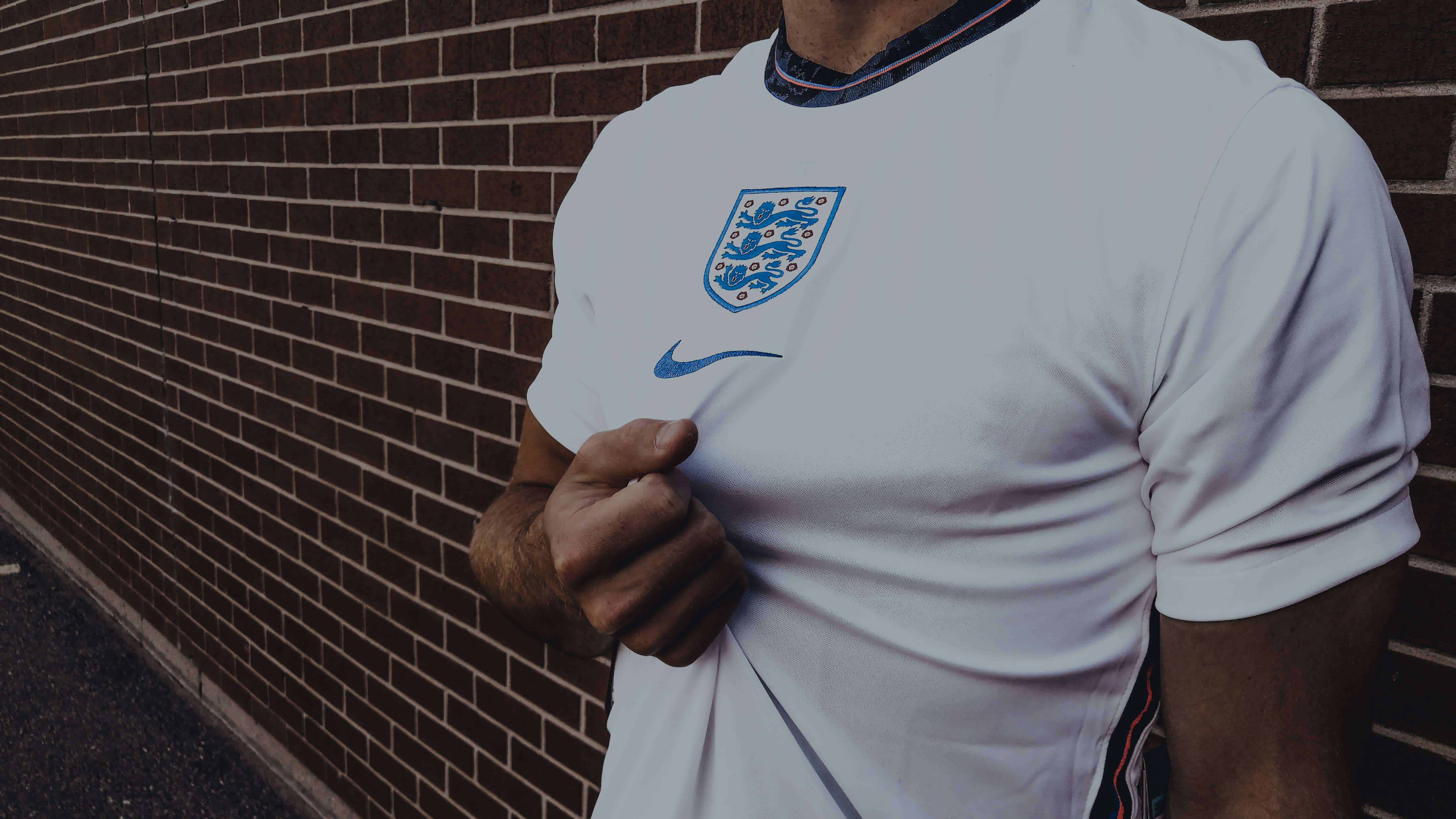
In the world of football shirt sales, especially on the secondhand market – trust is paramount. Sellers strive to assure buyers of the authenticity and quality of their merchandise. As a seller, how do you establish this crucial trust with your customers? At KitLegit, we’ve crafted a solution tailored precisely for sellers in the football shirt market. Trust is at the core of what we do. We understand the challenges sellers face when proving the authenticity of their products and ensuring buyer confidence. KitLegit aims to streamline this process, ensuring peace of mind for both sellers and buyers. Digital certificates One of our key features, the Digital Certificate, serves as a testament to the authenticity of the product. It’s a digital stamp of approval that accompanies each item checked. This certificate encapsulates crucial details, providing buyers with clear evidence of the product’s authenticity – each category score, photos and more. Verified badges Moreover, we introduce the Verified Badge, an emblem that signifies a KitLegit-verified product. This badge acts as a mark of trust, instantly reassuring potential buyers that the item has undergone rigorous authentication processes. Of course, counterfeiters can easily add a KitLegit logo to their offering – but what they can’t do is replicate the record on the KitLegit platform. With shareable QR codes, sellers and buyers can easily access the record and digital certificate to ensure it is the real thing. Trust can be established, and verified in seconds. For us, the beauty of KitLegit lies in its simplicity and effectiveness. Our platform aims to revolutionize the seller-buyer dynamic in football shirt sales. We’ve recognized the need for transparency and trust in this market and have diligently crafted features that bridge this gap. A few seconds to build trust Imagine this scenario: A seller, using KitLegit, provides a prospective buyer with a QR code. The buyer scans it, instantly accessing the Digital Certificate. They see the Verified Badge, assuring them of the product’s authenticity. This seamless interaction instills confidence and trust, leading to a successful purchase. KitLegit isn’t just about authenticating products; it’s about fostering trust and security within the football shirt market. Sellers now have the tools to build stronger relationships with their buyers, fostering loyalty and confidence in their brand. Join the KitLegit waitlist and start building trust, transparency, and authenticity.
Don’t Be Fooled: 7 Expert Tips for Spotting Counterfeit Sports Gear
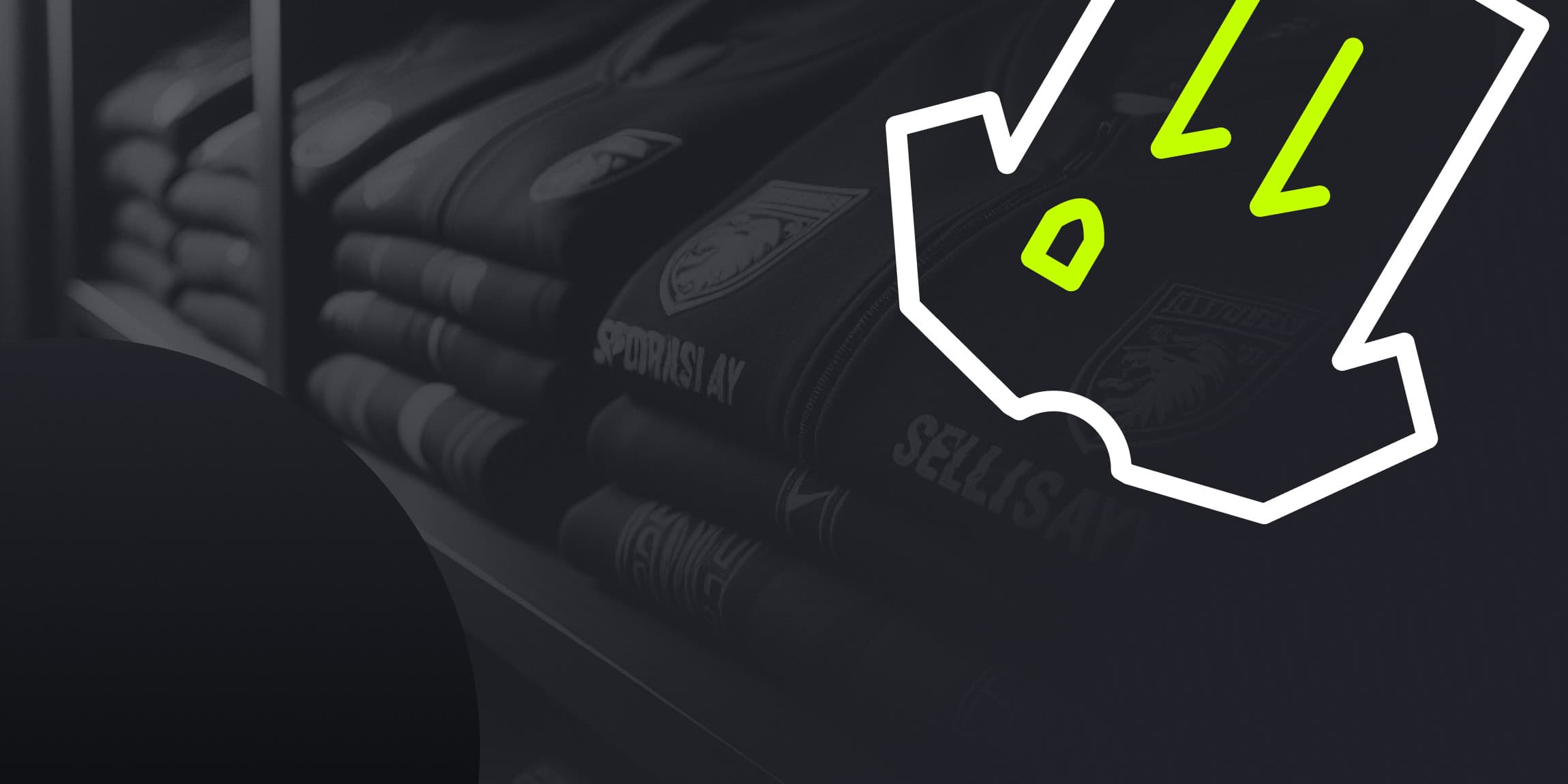
Have you ever been lured in by what appeared to be a fantastic deal on your club’s favorite kit, only to realize later that it was a fake? It’s an all-too-common scenario in today’s market. Counterfeiters are continuously honing their craft, making it increasingly challenging to differentiate between the genuine and the counterfeit. Here are seven essential tips to help you steer clear of counterfeit sports gear: 1️⃣ Price Check: If the price seems too good to be true, it likely is. Beware of unusually low prices. 2️⃣ Quality Inspection: Keep an eye out for telltale signs like misspellings, loose threads, or irregular badge placements. Counterfeiters are always cutting corners. 3️⃣ Acetates: Look for specific authenticity indicators, such as acetate peels on labels or unique markings on the main badges. This is a definite fake. 4️⃣ Research: Compare the product you’re eyeing with the original design available online. Any differences can raise red flags. 5️⃣ Post-Purchase Check: Give your gear a wash and keep an eye out for signs of peeling or wear. Counterfeits often show early signs of wear and tear. 6️⃣ Compare style codes and COMs: Dig into style codes and manufacturing countries on Google. Discrepancies in these details can hint at a fake. 7️⃣ Simplify with KitLegit: Utilize technology to your advantage. KitLegit offers a seamless way to authenticate sports gear within seconds! Just scan it and get an instance result. At KitLegit, our mission is to empower consumers to make informed decisions while purchasing sports gear. Our innovative tool is designed to swiftly and accurately authenticate products, offering peace of mind to buyers.
How AI is Revolutionizing Sports Merchandise Authentication
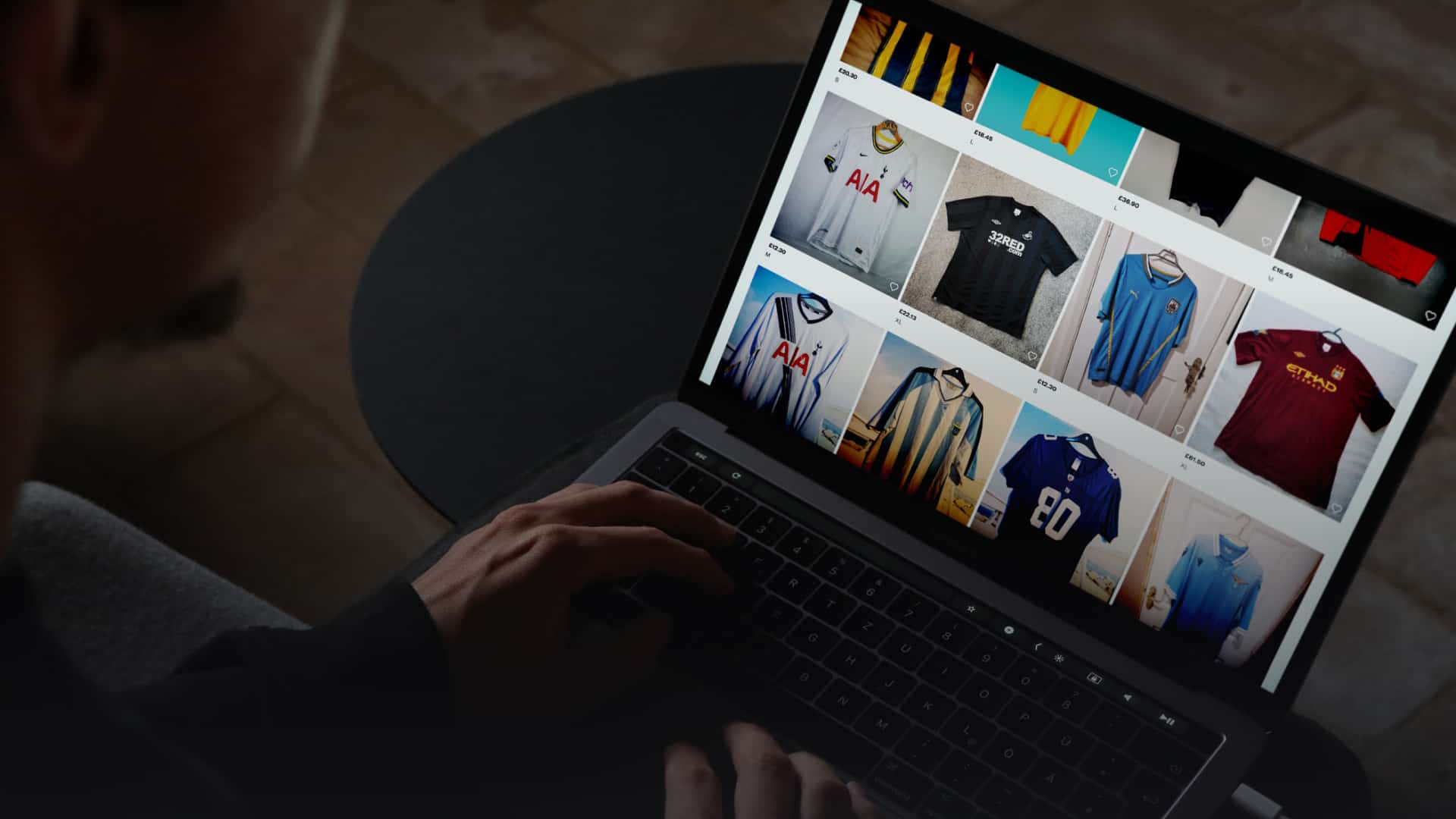
Artificial intelligence (AI) is reshaping the game – and not by replacing humans, but working alongside them. Harnessing the power of AI to authenticate sports merchandise is the next step in keeping the sports retail space and consumers safe. As founders who live and breath sports merchandise, we dive into why AI is not just a game-changer; but a safeguard for authenticity and a bridge that connects sports fans with the merchandise they cherish. The economic costs of counterfeiting and piracy are expected to reach nearly $3 trillion in 2022. Authentication Then and Now Traditionally, sports merchandise authentication relied on a mix of manual inspections and specialized knowledge. Experts would scrutinize every detail, from stitching patterns to holograms, to determine an item’s authenticity. While these methods served a purpose, they had limitations. It was a time-consuming process, and human error could occasionally slip through the cracks. Finding people with the right expertise and training them was an added expense and even the best human brain couldn’t always identify a counterfeit style code or incorrect stitching. How AI Changes the Game In contrast, AI offers a streamlined and efficient approach. Unlike humans, technology can instantly analyze vast datasets, identify subtle inconsistencies, and authenticate products with an accuracy that surpasses human capabilities. Training is instantaneous, and AI can be quickly corrected if an inconsistency occurs. Furthermore, AI is scalable – meaning it can take on more workload and go quicker than its human counterparts. Humans and AI as Collaborators The pressing question here is, will AI replace humans and lead to job losses? Our answer is a resounding ‘no.’ Just as a shovel complements a human digging with a toothpick, AI serves as the next-generation tool to augment human efforts, rather than replacing them. Unlike humans, technology can instantly analyze vast datasets, identify subtle inconsistencies, and authenticate products with an accuracy that surpasses human capabilities. The recent scandal involving StockX and Nike is a glaring example of why collaboration between humans and AI is essential. The controversy emerged when it was revealed that counterfeit sneakers infiltrated StockX’s authentication process. This incident underscores the need for a multi-layered approach that combines human expertise and AI-powered solutions. While AI can quickly scan for inconsistencies, human inspectors can provide nuanced insights that machines may miss. At KitLegit for instance, AI flags inconclusive items for humans to verify, while also ensuring that spot checks are prevalent to ensure consistent accuracy. Accuracy and Standards in AI Authentication One of the challenges with AI authentication is maintaining accuracy and setting industry standards. An AI system constantly refines its algorithms, learning from new data and adapting to emerging techniques and trends. Forming partnerships with industry stakeholders to establish rigorous authentication standards is also a key mechanism to ensure greater and greater accuracy. The end goal is always for consumers to trust the authenticity of their sports merchandise. For us at KitLegit, this is the key to unlocking the AI and authenticity game – building a trusted relationship with the producers and distributors in the sports merchandise domain. How KitLegit Sees the AI Future At KitLegit, we see AI as the future of authentication. While marketplaces, retailers and manufacturers spend billions to fight counterfeiters, the economic costs of counterfeiting and piracy are expected to reach nearly $3 trillion in 2022. Our mission at Kitlegit, is to protect consumers from counterfeit product and fraud, by providing the most innovative, accessible and cost-effective technology to authenticate sports merchandise. AI technology stands at the forefront. At KitLegit, AI is not just a tool; it’s the cornerstone of our authentication process. While sports authentication has existed for decades, it has yet to reach mass perfection. Instead of focusing on individual pieces like autographed football shirts, we concentrate on the broader market. Our primary objective is to curb the proliferation of counterfeit products as a whole. Through curated authenticity checks, we empower consumers to confidently identify genuine products. Digital certificates provide a clear record of authenticity, while our sharing links facilitate safe and secure transactions. In a world where counterfeiters constantly evolve, we want to ensure that we evolve right along with them. Conclusion The game is changing in the realm of sports merchandise authentication, and AI is not a distant concept; it’s the present and future of ensuring authenticity. By collaborating with humans, AI reinforces the defense against counterfeit products, ultimately restoring trust among fans and collectors. Learn more about KitLegit and our AI authentication process over at kitlegit.com, and connect with us on LinkedIn or through our website, we’d love to collaborate on the next big thing!
The Reality of Fan Trust After Buying Counterfeit Goods
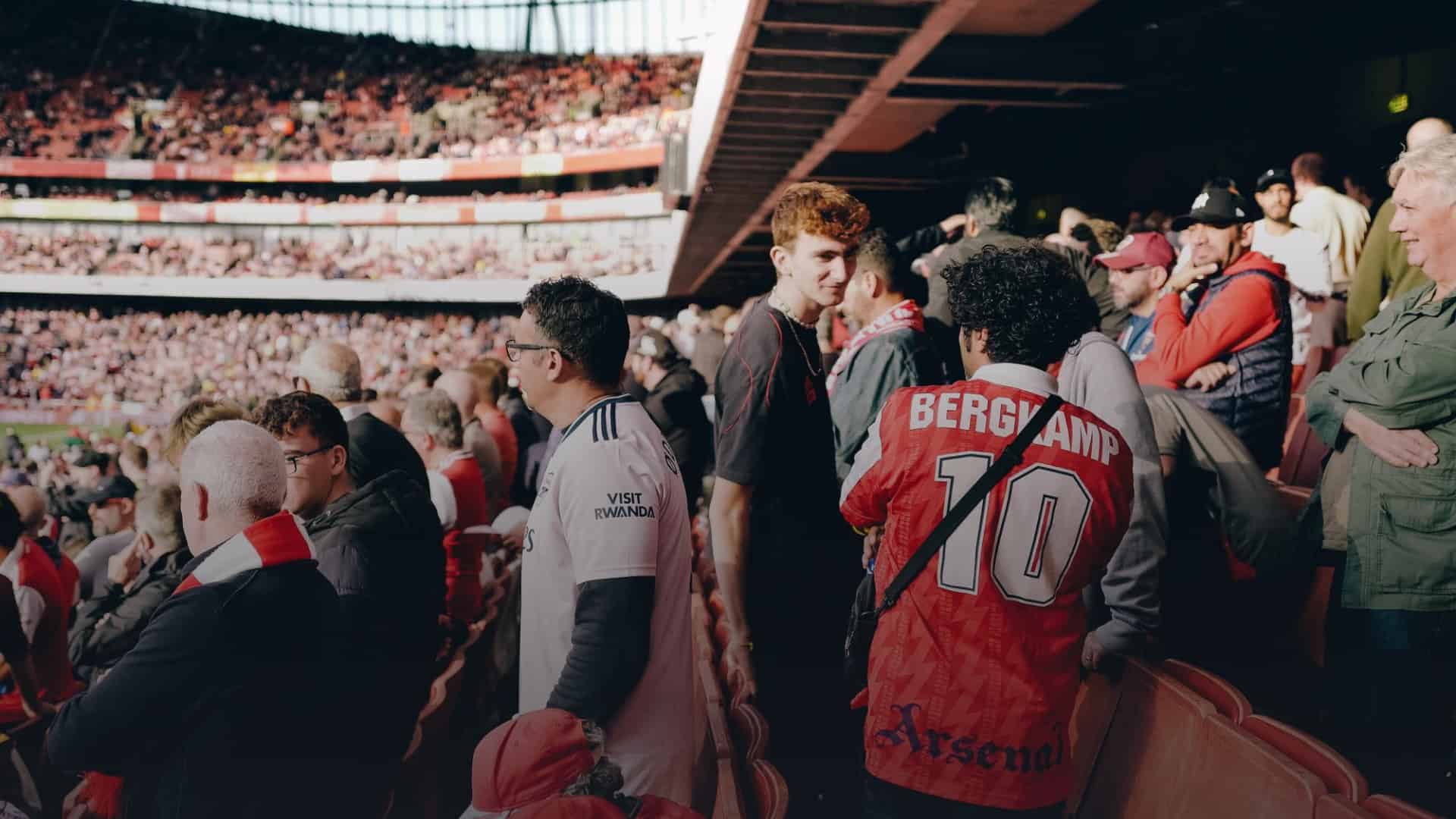
Unintentional Encounters with CounterfeitsOnline shopping has revolutionized the way we acquire sports gear and memorabilia. However, it has also become a breeding ground for counterfeit products. A 2017 study highlighted by Forbes.com found that 39% of all unwitting purchases of counterfeit goods occur through online third-party marketplaces. It’s a staggering statistic, underscoring the ease with which counterfeiters can infiltrate these platforms. The Fallout of Unintentional Counterfeit PurchasesThe impact of these unintentional purchases extends well beyond financial loss. In the last year alone, nearly a quarter of UK consumers have been ripped off due to unintentionally buying counterfeit goods. While the vast majority of online shoppers, 92%, are aware that counterfeit products are advertised and sold online – three-fifths of this group confess that they struggle to distinguish between genuine and fake products. Three out of five UK consumers are unable to distinguish between genuine and fake products. Lost Trust and Brand DamagePerhaps most alarmingly, 66% of those who have fallen victim to counterfeit purchases have lost trust in the associated brand. Perhaps this is the reason Nike and Birkenstock were two highly visible, public exits from Amazon – driven primarly by counterfeiting concerns. These statistic highlights the damage counterfeit goods can do to the reputation of legitimate brands – even those doing their best to fight fakes. The trust that took years to build can crumble in a matter of moments. Negative Experiences Leave a MarkThe repercussions don’t stop there. Negative experiences related to online shopping and unintentional counterfeit purchases often lead to drastic measures. According to Smart Protection, 30% of consumers stop shopping on that specific online channel, while 28% leave a negative review with the official brand – often also stopping their purchases from said brand. 39% of all unwitting purchases of counterfeit goods occur through online third-party marketplaces. The Power of Word of MouthConsumers aren’t shy about sharing their experiences. In fact, RedPoints found that 52% of those who unintentionally purchased fake sporting goods said they would warn their friends and family against buying anything from that particular brand. The impact of word-of-mouth can ripple through fan communities and social networks, often damaging the brand’s reputation and the source from which a fake product was purchased from.In a world where consumer trust and loyalty are paramount, unintentional encounters with counterfeit sports goods can be profoundly damaging, not only financially but also in terms of brand image.Learn more about fakes and counterfeiting on KitLegit and connect with us to share your experience with counterfeits.
